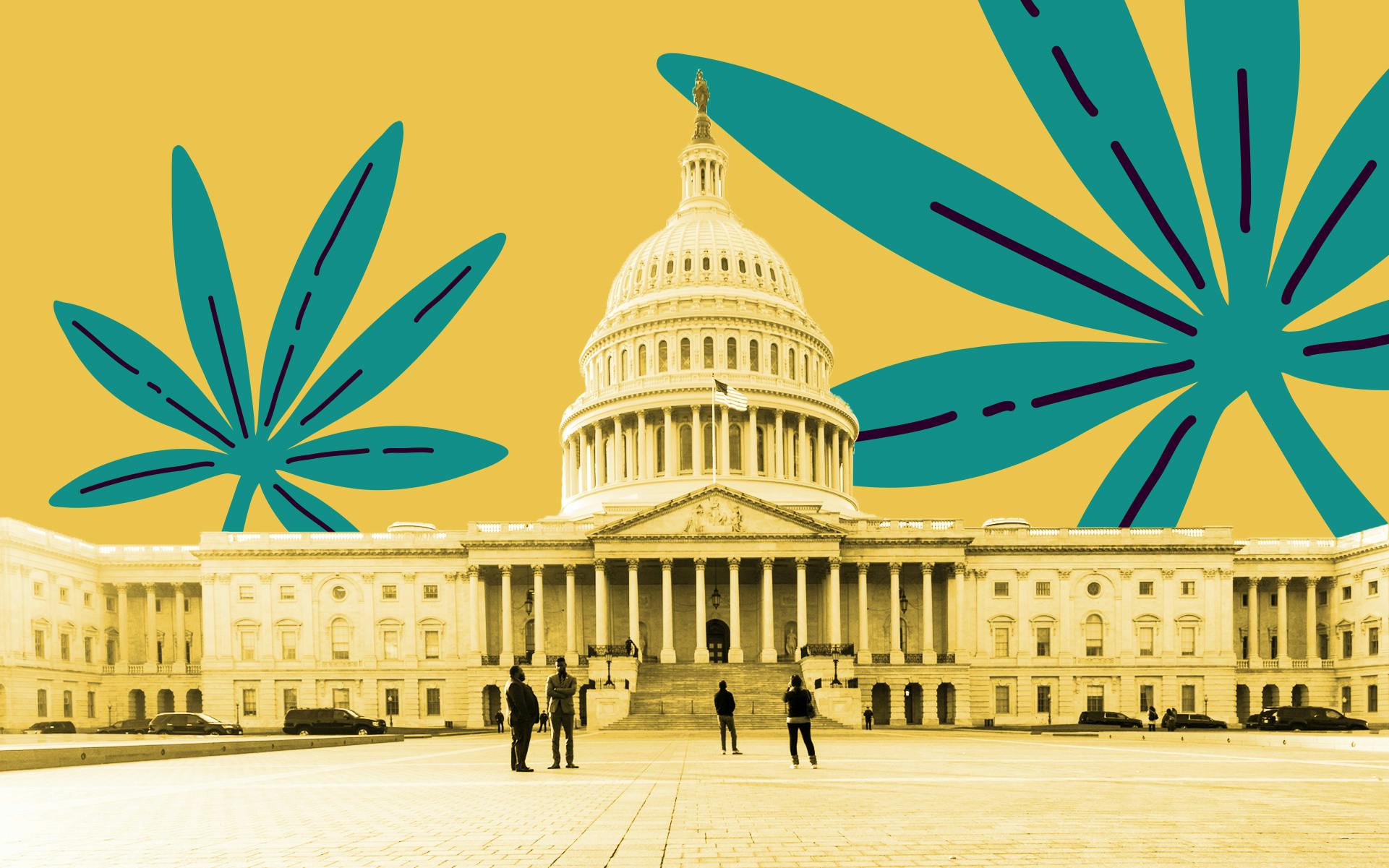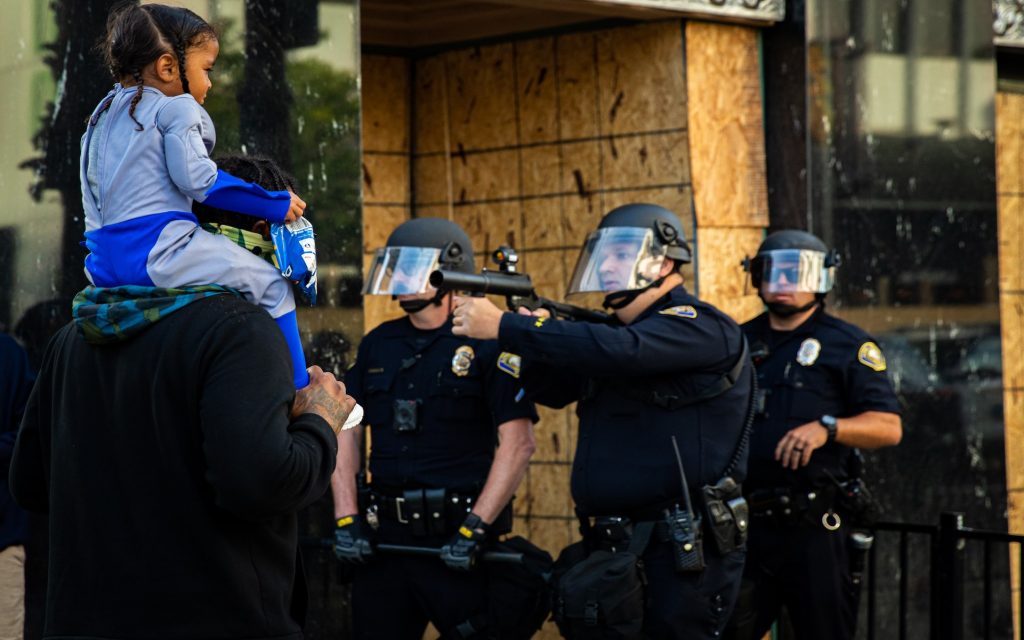The House passed the MORE Act. Is weed legal now?

The MORE Act would federally legalize cannabis and enact social justice measures to repair some of the damage done by the War on Drugs (miralex/iStock)
The House passed the MORE Act. Is weed legal now?
Nope!
Legalization is like Beetlejuice—you gotta say its name five times before it appears. In this case, the House of Representatives today approved a bill that takes marijuana off the list of dangerous drugs. Now the bill goes to the Senate, and then the White House. Until the President signs it, it’s just a bill on Capitol Hill.
So why is everyone freaking out?
Because it’s a historic milestone that warrants celebration.
Cannabis consumers’ rights have moved from the ‘60s hippie fringe to a majority vote in Congress. Celebrating this moment builds momentum toward passing legalization, which is needed because the Senate is controlled by Republicans, and the incoming President-elect is pro-decriminalization, but anti-legalization.
Headcount.org’s Cannabis Voter Project is encouraging folks to email their Senators.
What’s in the MORE Act?
Congress voted 228-164 to pass H.R. 3884—the Marijuana Opportunity Reinvestment and Expungement Act of 2019 [MORE Act of 2020]. That’s a big deal because it contains some remarkable provisions. Here’s the text of H.R. 3884.
For the first time since the ‘70s cannabis would not be treated as equal to heroin or PCP. Marijuana would no longer be a Schedule I drug.
According to the bill:
“Not later than 180 days after the date of the enactment of this Act, the Attorney General shall finalize a rulemaking under section 201(a)(2) removing marihuana and tetrahydrocannabinols from the schedules of controlled substances.”
“Marihuana and tetrahydrocannabinols shall each be deemed to be a drug or other substance that does not meet the requirements for inclusion in any schedule.”
Millions of lives have been altered by the war on marijuana, which began in the ‘30s. Police make more than 600,000 marijuana arrests each year.
Meanwhile, one in three Americans now lives in a legalization state. Legal cannabis powers 243,000 essential jobs. The House vote is a bright spot in a harrowing year for cannabis business operators. It’s more popular than any politician, or party, Gallup reports.
“This year really is going out with a bang,” said dispensary owner and longtime activist Debby Goldsberry in Oakland, CA. “And it is something the whole industry needed right now. Maybe America needs this, to be honest. This should be celebrated by everybody.”
MORE would be retroactive
The MORE Act could begin to restore full civil life to millions of people with a current or past marijuana offense. According to the bill:
“The amendments made by this section to the Controlled Substances Act (21 U.S.C. 801 et seq.) are retroactive and shall apply to any offense committed, case pending, conviction entered, and, in the case of a juvenile, any offense committed, case pending, or adjudication of juvenile delinquency entered before, on, or after the date of enactment of this Act.”
Police Major Neill Franklin (Ret.), Executive Director of the Law Enforcement Action Partnership said:
“As a police officer, I helped wage a so-called war on marijuana. But no matter how hard we tried, how many losses we were willing to sustain to our own side, how many dollars spent, and how many lives ruined, we never made a dent in either demand or supply for very long. Today I am thrilled to see that after almost fifty years of this catastrophic war, our congressional leaders have finally decided to lay down their arms and try something that works.”

A federal pot sales tax would pay for opportunity grants
The MORE Act comes with a legalization tax that flows to an “Opportunity Trust Fund” to pay for law enforcement and small business loans. The federal tax would be 5% of the sale price of a cannabis product.
A new “Cannabis Justice Office” at the Office of Justice will be created to carry out grant program funding, including:
- Job training
- Reentry services
- Legal aid for civil and criminal cases, including expungement of cannabis convictions
- Literacy programs
- Youth recreation and mentoring programs
- Health education programs and services to address any collateral consequences individuals or communities face as a result of the war on drugs
- Administering substance use treatment services for individuals most adversely impacted by the war on drugs.
Senate majority leader Chuck Schumer said:
“I have long believed that any effort to reform our nation’s marijuana laws should also include significant measures to undo the harms that too many families and communities have suffered as a result of the war on drugs … These bills are part of a broader movement to address inequities in criminal justice, business and more.”
And a Cannabis Opportunity Program, with a cannabis licensing board
The program would also offer grants to boost licensing equity at the local level. A licensing board “reflective of the racial, ethnic, economic, and gender composition of the State or 21 locality, [would] serve as an oversight body of the equitable licensing program.”
Federal regulators want to see who’s in the industry, for diversity’s sake, which would entail mandatory reporting of staff.
Federal small business help could become easier
The Small Business Administration would not be able to discriminate against cannabis businesses for loans and other help.
Immigration reform included
Striking marijuana from the Controlled Substances Act means it could not be used to trigger deportation or reject asylum claims:
“Cannabis may not be considered a controlled substance, and an alien may not be denied any benefit or protection under the immigration laws based on any event, including conduct, a finding, an admission, addiction or abuse, an arrest, a juvenile adjudication, or a conviction, relating to cannabis, regardless of whether the event occurred before, on, or after the effective date of this Act.”
Expungement for federal juvenile marijuana offenders, etc
Anyone with a federal juvenile cannabis case since 1971 could wipe it away under the MORE Act. Furthermore, everyone in prison for pot gets a “sentencing review” for a potential reduced sentencing.
“I have worked on this issue for 47 years,” Rep. Earl Blumenauer (D-OR), co-chair of the Congressional Cannabis Caucus, said on the House floor on Friday, prior to the final vote. “We’re here because we have failed three generations of Black and Brown young people, whose lives can be ruined, or lost, by selective enforcement of these laws. This legislation will end that disaster. It’s time for Congress to step up and do its part. We need to catch up with the rest of the American people.”
What’s not in the MORE Act?
The MORE Act is not all singing and dancing for commercial federal legalization. It just lets states go their own way with regard to marijuana law. A lot of follow-up work would remain.
Conservative states will likely still ban marijuana under their own state law, as opposed to federal law. Young Black and Brown people may still be disproportionately arrested in large numbers in those states.
The MORE Act is an awkward step toward legal cannabis diversity and inclusion, critics note. For example, a late amendment bans pot felons from an industry job, essentially punishing drug war victims.
Steven Hawkins, Executive Director at the Marijuana Policy Project said, “It falls short of a perfect bill and at least one provision can hopefully be removed before final enactment … This policy could block many of those individuals accused of prior marijuana offenses from participating in the legal market, which will inhibit our ability to create an equitable and fair marijuana industry. The fact that it might apply to people who were never even convicted of a crime makes it particularly unacceptable.”
https://www.leafly.com/news/politics/more-act-vote-explained


